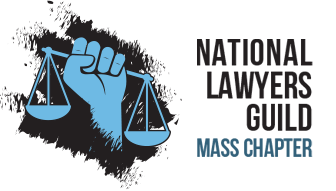A Victory! In spring 2018, the NLG-Mass Chapter reached a settlement of the lawsuit that provides for dramatic improvements in the health care of all prisoners in Massachusetts.
We particularly want thank our partner, Prisoners’ Legal Services, whose expertise and hard work was critical at every step along the way.
The settlement includes Hepatitis C testing for all incarcerated people (except those who opt out), monitoring of those in the beginning stages of the disease, timely treatment if and when the disease progresses, and the end to various non-medical disqualifications from treatment (e.g., having a disciplinary infraction). These had previously excluded many ill people from necessary, sometimes life-saving treatment.
We believe ours was the first class action lawsuit to address this deplorable situation and the first to conclude with an agreement for treatment that satisfies the necessary standard of care. Encouraged by our victory, dozens of other lawsuits have been filed. We hope this settlement will help resolve other cases and improve health care for incarcerated people nationally.
Background
In 2014, the NLG-Mass Chapter’s Litigation Committee started investigating the treatment of Massachusetts prisoners infected with the potentially deadly disease of Hepatitis C. According to 2015 statistics provided by the Massachusetts Department of Correction (DOC), more than 1,500 people in their custody were infected with the disease. Only a handful was being treated. There was no regular procedure for testing people for Hep C and treatment was rationed, creating a long waiting list. To make matters worse, the DOC had contracted out medical services to a private company that had limited treatment slots available.
Working with Prisoners’ Legal Services, we filed a class action lawsuit in June 2016 against DOC and the medical provider, alleging that their failure to provide proper medical care to incarcerated people violated the Eighth Amendment prohibition against cruel and unusual punishment. We argued this was especially true considering the availability of new, highly effective drugs with a cure rate of over 90 percent.



